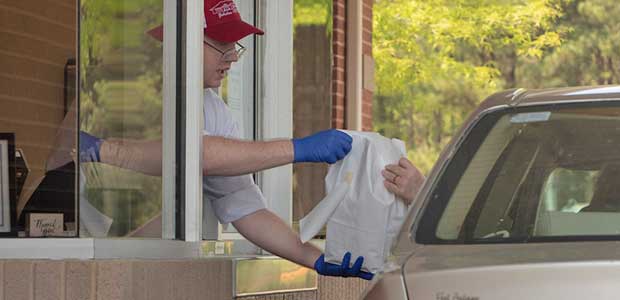
Workers are Doing Everything They Can, but Are Customers?
Mask ordinances vary by state and county, and many people believe the US is past the worst of the pandemic. But as workers in essential business are saying, they feel safe among themselves (with PPE and sanitation), but many customers are throwing caution to the wind.
Many essential workers are working during the pandemic—but now, they wear gloves, masks, sometimes protective eyewear. They try to work six feet apart from one another, wash their hands often and take their temperatures before work every morning. The customers, however, are a different story.
It seems most of the country is beginning to disregard mask suggestions and loosen their social distancing practices. Customers walk into stores, restaurants and shops without a mask, and workers are left to protect themselves—but also do their jobs.
One Vox article outlines the dilemma many essential workers are facing right now: while they feel decently safe and protected amongst themselves at work, they cannot control what the customers do, and that is concerning.
One Starbucks employee, Elizabeth, and her coworkers are doing everything possible to protect against the virus. They take their temperatures at the start of each shift, wear masks and gloves, stay six feet from one another and sanitize the store often.
“Among ourselves, we feel safe,” Elizabeth said. “But we don’t know if customers are washing their hands.”
The article makes a point that while corporations and managers can do the right thing in protecting their workers, it all boils doing to the worker-customer interactions. Since there are no national standards to protect workers from the virus, the federal government has instead asked companies to regulate themselves. Many groups, like OSHA and the CDC, have given recommendations for workplaces, but not made requirements.
The problem also comes from the fact that many states have eased back restrictions, while others are still requiring everyone to wear masks in public.
Some people are not just concerned with the lack of federal guidance—they are even more concerned with the large corporations outputting safety recommendations.
“I think the issue here is that we shouldn’t be allowing big non-union corporations like Amazon or Walmart to decide what is a sufficient level of safety precautions for their workers,” said John Logan, the director of labor and employment studies at San Francisco State University. “Because to be perfectly honest, I think experience shows that they cannot be trusted to prioritize the safety of their workers and even the safety of their customers over their own profits.”
Customer behavior is the most dangerous behavior, many are arguing. While federal regulations on uniform safety standards would certainly help workplaces, customers have a role as well.
“For as long as this pandemic endures, companies must implement and enforce store safety measures,” they write via email, “And customers must be encouraged to shop smart.” As Marc Perrone, president of the UFCW, said to CNN. “Careless customers” are “probably the biggest threat” to workers right now.
Even in areas where masks are “recommended”—like many cities in Texas, for example—customers are not wearing them anymore. While employees still wear masks to protect themselves and others, the masks are not going to completely eliminate their risk of getting sick. If employees interact with customers not wearing masks, there is still a risk of infection.
Mike Van Dyke, an occupational health professor at the Colorado School of Public Health, said customers should be “respectful” by wearing masks and “maintaining distance as much as possible” while shopping. “It gets hard in terms of different places across the country,” he said. “Some places have required mask ordinances in place and some places don’t.”
While Starbucks is paying its workers $3 more per hour as a “hazard pay,” many other chains are not doing so. Daniel, who works at Taco Bell, says he is still being paid his usual $12.50 an hour. In fact, the Taco Bell CEO Mark King said all Taco Bell’s franchises and employees are required to wear masks, wear gloves and do temperature checks at the beginning of every shift.
Daniel the Taco Bell he works at does not have thermometers or do temperature checks. “Not even close.”
Despite the procedures, Daniel said, customers continue to operate with little caution. “An alarming amount of [customers] weren’t wearing masks, weren’t wearing gloves when they gave me their card,” he said. “I saw a few coughing into their shirts—I was looking at them through the drive-thru window.”
He didn’t feel safe coming to work, but he also couldn’t afford not to. Daniel later tested positive for the coronavirus.